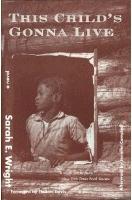Genre: Historical fiction
 This Child's Gonna Live
by
Sarah E. Wright
This Child's Gonna Live
by
Sarah E. Wright
 Reaching Out: sensitivity and order in recent American fiction by women
by
Anne Z. Mickelson
Reaching Out: sensitivity and order in recent American fiction by women
by
Anne Z. Mickelson
